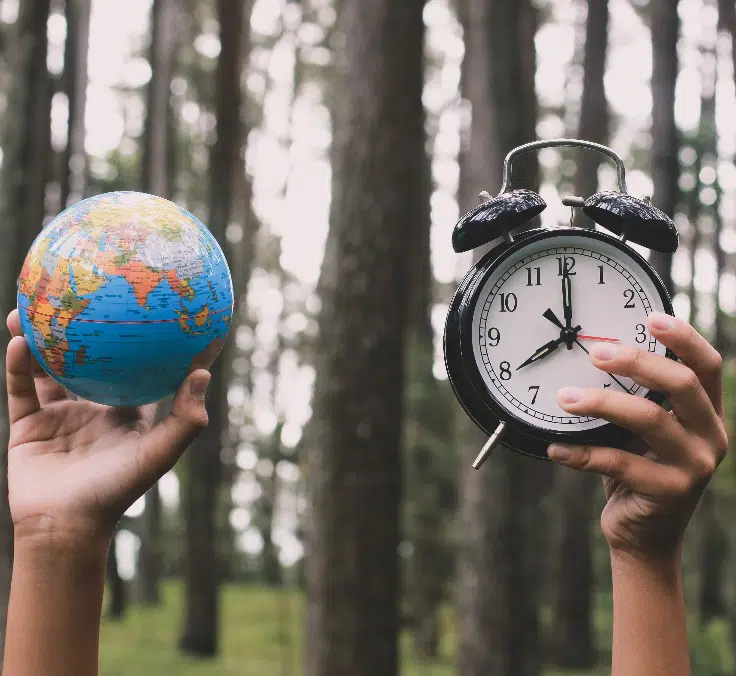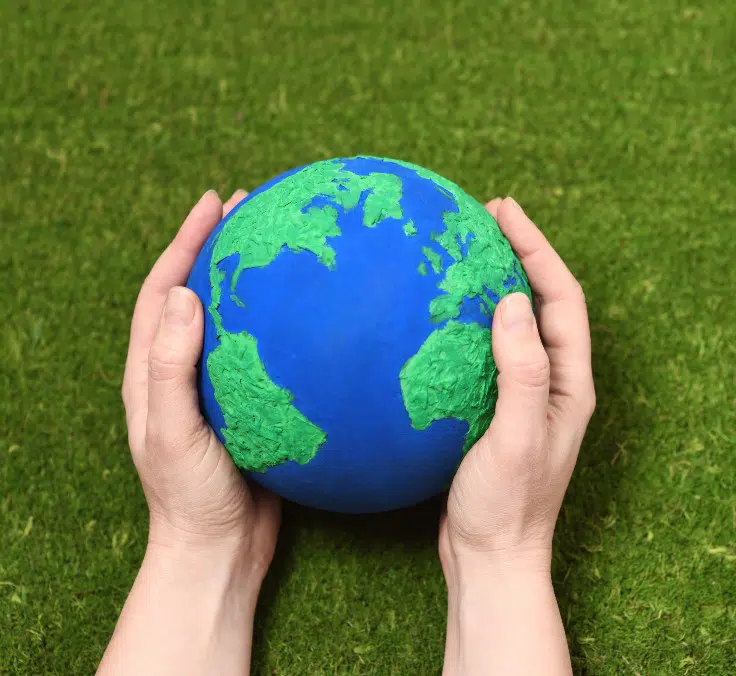HEALTH| 01.04.2022
Eco-anxiety and how to fight it?
Climate change is the worst threat we face as a society, and it threatens the future of our planet as we know it. This fact and the increasing news we see daily in the media are sharpening the negative psychological impacts on some people, a phenomenon known as eco-anxiety.
Over the last decade, psychologists have noted that more and more people are suffering from this new condition linked to the climate crisis. People suffering from climate anxiety are concerned that if we do not act urgently, we will not be able to cope with the effects of climate change, which are becoming increasingly evident. Below we review what eco-anxiety is, how it affects us and what we can do to feel better and at the same time take care of the planet.
The anxiety to save the planet is called eco-anxiety
Eco-anxiety is a new form of mental health condition that is generated by worry about the uncertain future we face.
The American Psychological Association (APA) describes this condition as “a chronic fear of environmental doom and the stress caused by watching the slow and seemingly irrevocable impacts of climate change unfold, and worrying about the future for oneself, one’s children, and later generations.”
For now, it is not considered a pathology, but experts warn that the high levels of worry about the climate emergency we are experiencing can lead to psychological disorders and consequences in some people, which requires watching their condition.
This feeling of fear and anxiety increases when we read in the media about global warming or when we see devastating images of extreme weather phenomena, such as the rising temperature that is causing the Arctic to melt.
How does climate anxiety affect us?
It is true that, so far, the scientific community has been more focused on analyzing the effects of human actions on the environment and how these consequences impact our physical health, for example, due to pollution or food shortages, among other problems. But there is also a new paradigm in which analysis and debate are increasingly focusing on effects of climate change on our mental health.
The youngest members of society are the most affected by climate anxiety; precisely those who have the most future ahead of them and who see with their own eyes the consequences of what previous generations have done. The results of a recent study by the Avaaz platform, with researchers participating from six universities around the world, reveal that 75% of respondents, i.e. more than 7 out of 10 young people aged 16 to 25, feel that their future is terrifying, a percentage that increases to 81% among young people surveyed in Portugal and 92% in the Philippines. In addition, 65% think that governments are not doing enough to prevent a climate catastrophe; and 39% are hesitant to have children because of the global emergency we are facing.
According to the same study, nearly half of the young people surveyed globally–45%–say that climate change-related anxiety is affecting their daily lives–the way they play, eat, study and sleep.
In view of the results of these studies, we can confirm that the worry is real. But there are ways to cope with the anxiety generated by the climate crisis we are currently experiencing and, going a step further, to be able to act by taking action to improve the future of the planet and that of the next generations.
Coping with eco-anxiety
“Become the change you want for the planet” say the slogans of the environmental struggle over and over again. But how do we take action? To ease the feelings caused by climate anxiety, the best thing to do is to feel useful and be aware of the situation.
One of the keys is to learn to live in a more sustainable way, opting for more responsible and local consumption, supporting sustainable brands, reducing the use of single-use plastics, etc. In short, action is based on supporting sustainable development and setting an example.
By sharing individual changes, we will achieve collective changes, the small changes that can make a difference in the environment, but also in mental health.
Another key to combating eco-anxietyis to better understand the times in which we live in all their facets, including the effects of climate change, how it affects us and what we can do about it. The scientific community is clear: there is still time to reverse its effects. But to do so, it is essential to commit to the goals of the 2030 Agenda and to act from our personal and local position.
The American Psychological Association (APA) also provides some guidelines to combat this discomfort, such as relying on personal resilience (i.e., having the ability to adapt to adversity and being positive about the ability to overcome), fostering optimism, seeking help, and finding a purpose, and so on. An example of the latter could be joining the cause through activism, which would be seen as a solution to manage distress, finding comfort with support in the community.
Sharing concerns with our circle of family and friends and feeling supported can improve our motivation and ability to act. The climate crisis cannot be solved individually, nor can mental disorders.
If, in spite of becoming aware of the problem and seeking any of the above solutions, the symptoms continue to prevent us from living our lives normally, the most important thing to do is to see a specialist.
Our commitment: #PlayingOurPart
At MAPFRE, we have set our sights on the world and on global challenges in order to leave a positive footprint in society and contribute to building a world that is more equal, just, ethical, inclusive, developed, and transparent.
With #PlayingOurPart as our motto, we face the challenges in a way such that our activity can contribute, with everyone working together. It is an action-based concept oriented toward all people that represents the part that each of us plays, in the thousands of gestures that add up to the common goal of protecting the planet and those living on it. This is our commitment, so that, together, we can continue building a better present and future.
RELATED ARTICLES:




